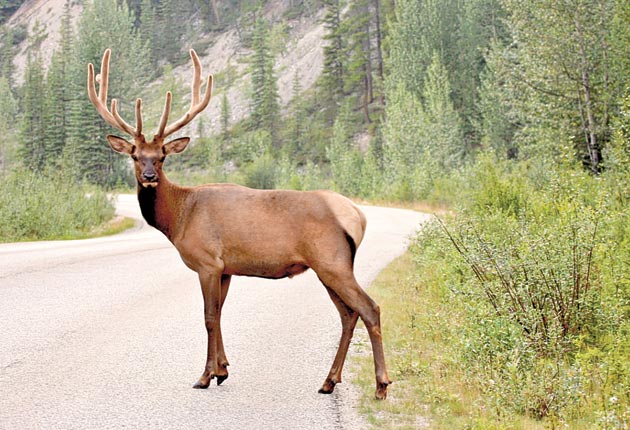Nigel Hawkes: These over-inflated deer-crash statistics must be tackled head on
Behind The Numbers

Your support helps us to tell the story
From reproductive rights to climate change to Big Tech, The Independent is on the ground when the story is developing. Whether it's investigating the financials of Elon Musk's pro-Trump PAC or producing our latest documentary, 'The A Word', which shines a light on the American women fighting for reproductive rights, we know how important it is to parse out the facts from the messaging.
At such a critical moment in US history, we need reporters on the ground. Your donation allows us to keep sending journalists to speak to both sides of the story.
The Independent is trusted by Americans across the entire political spectrum. And unlike many other quality news outlets, we choose not to lock Americans out of our reporting and analysis with paywalls. We believe quality journalism should be available to everyone, paid for by those who can afford it.
Your support makes all the difference.A stag at bay closed a major road in Birmingham for four hours on Wednesday. After visiting a Vauxhall dealer's forecourt, it made for the central reservation of Heartlands Parkway, hiding among trees.
Eventually a marksman arrived to tranquillise it and the road was reopened.
October and November are among the riskiest months for coming across deer, the Highways Agency warns. At the end of the rutting season, fallow and red deer move around more, and traffic levels are also high. Hitting a deer in a car is no joke for either party, and the risks are increasing as deer populations rise.
But I'm not sure I can quite accept the Highways Agency's frequently repeated claim that there could be "up to 74,000" deer-vehicle collisions every year in the UK. "Up to" is generally a bit of a giveaway: it usually means the actual number is much lower. Remember the claim that "up to" 65,000 people could die of swine flu? It was actually a few hundred.
The 74,000 figure comes from a charity, The Deer Initiative, which aims to improve the lot of wild deer by better management and greater public understanding. In a study partly funded by the Highways Agency, the charity collected data on collisions from every imaginable source: road accident statistics, carcass-clearance data, "deer-knowledgeable" informants, the RSPCA, the police, the public, and a motor insurance company. These sources provided data on 22,278 such collisions between the beginning of 2000 and the end of 2005 – a rate of 3,700 a year. That's 20 times less than 74,000.
So where did the big number come from? A car insurer, Fortis Insurance, provided data for claims for 2003 and 2004 in which drivers said they had sustained damage by colliding with deer. There were 519 such claims with sufficient detail to compare them with the other sources of data, principally calls made to the RSPCA or deer injuries recorded by rangers. Only 18 of the claims – 3.5 per cent – matched incidents already logged.
The conclusion drawn was that there must be a huge number of unrecorded collisions: almost 30 times as many as there are insurance claims. The Deer Initiative says there are 11,000 such claims a year so if its calculations are right, the total number of collisions must be nearly 30 times higher – around 300,000 a year. Given a deer population of around 1 million, this is highly implausible, so it suggests strongly there is something amiss with the figures.
The Deer Initiative reached its more modest but still impressive 74,000 figure by a different – and to my mind, less logical – approach. Assuming the insurance claims represented genuine incidents, and that only 3.5 per cent of them had been ascertained in other ways, it concluded that ascertainment was low by a factor of nearly 30.
So it took the number of incidents recorded by the RSPCA (just over 2,000 a year in England) and multiplied them by 30, to get 60,000, adding another 14,000 for Scotland. Hey presto!
The aim of protecting wild deer is laudable. But the numbers don't impress. I'm sure there are thousands of such incidents every year – but not 74,000.
Nigel Hawkes is director of Straight Statistics (www.straightstatistics.org)
Join our commenting forum
Join thought-provoking conversations, follow other Independent readers and see their replies
0Comments